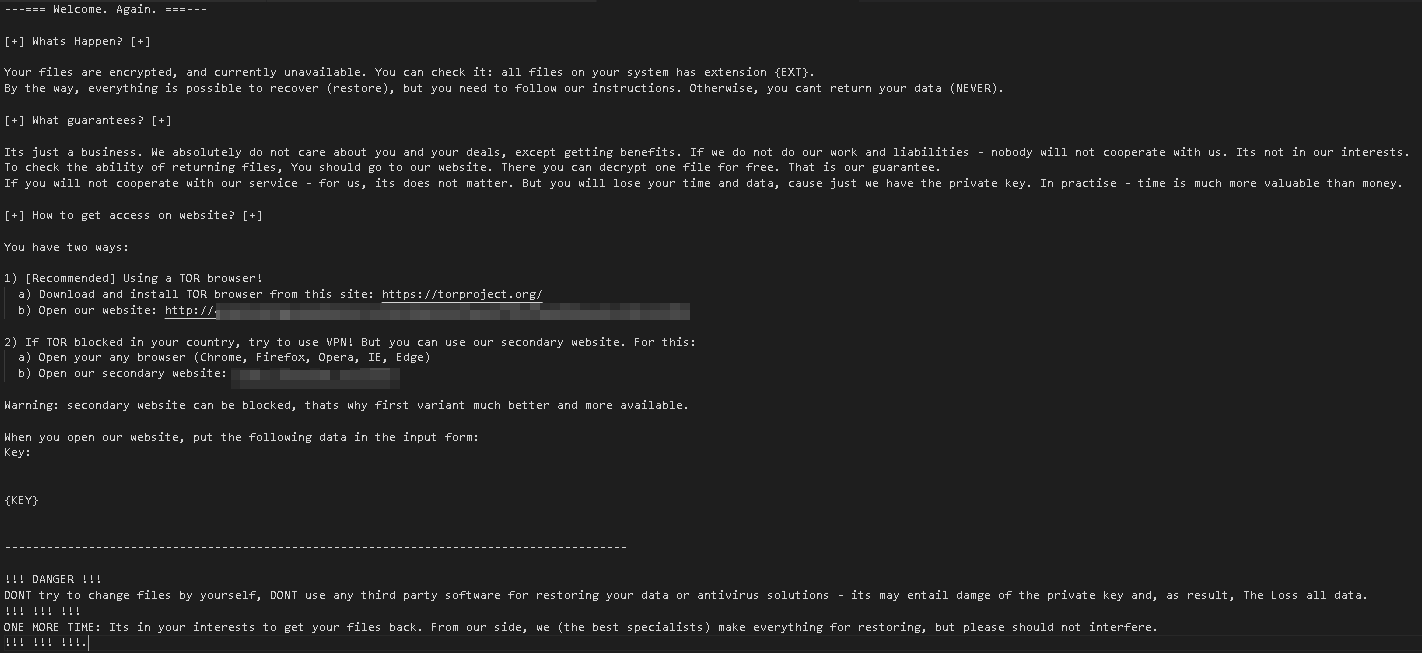Ransom.Linux.SODINOKIBI.THFBIBA
Ransom:Linux/Sodinokibi.JJ (MICROSOFT)
Linux


Threat Type: Ransomware
Destructiveness: No
Encrypted: No
In the wild: Yes
OVERVIEW
This Ransomware arrives on a system as a file dropped by other malware or as a file downloaded unknowingly by users when visiting malicious sites.
It drops files as ransom note.
TECHNICAL DETAILS
Arrival Details
This Ransomware arrives on a system as a file dropped by other malware or as a file downloaded unknowingly by users when visiting malicious sites.
Other Details
This Ransomware does the following:
- It terminates VM processes to ensure files are handled properly and to avoid file corruption.
It accepts the following parameters:
- --path - Path to be encrypted (Default is current directory)
- --silent (or -s) - Silently encrypt
- --threads - Specify amount of threads to be created (Default is 50)
Ransomware Routine
This Ransomware appends the following extension to the file name of the encrypted files:
- .rhkrc
It drops the following file(s) as ransom note:
- {Encrypted path}\{Random string}-readme.txt

SOLUTION
Step 1
Before doing any scans, Windows 7, Windows 8, Windows 8.1, and Windows 10 users must disable System Restore to allow full scanning of their computers.
Step 2
Note that not all files, folders, and registry keys and entries are installed on your computer during this malware's/spyware's/grayware's execution. This may be due to incomplete installation or other operating system conditions. If you do not find the same files/folders/registry information, please proceed to the next step.
Step 3
Scan your computer with your Trend Micro product to delete files detected as Ransom.Linux.SODINOKIBI.THFBIBA. If the detected files have already been cleaned, deleted, or quarantined by your Trend Micro product, no further step is required. You may opt to simply delete the quarantined files. Please check the following Trend Micro Support pages for more information:
Step 4
Restore encrypted files from backup.
Did this description help? Tell us how we did.


